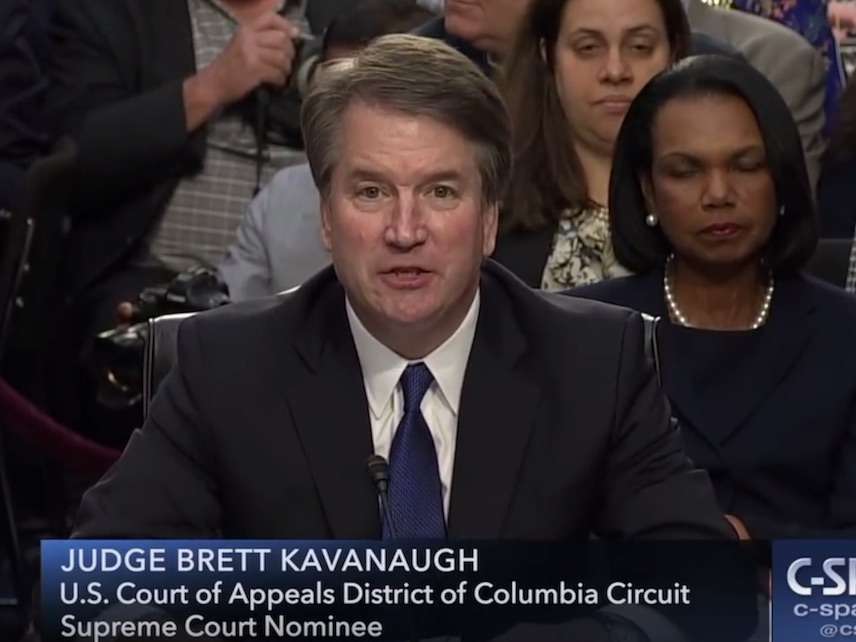Brett Kavanaugh Dodges Question About the 9th Amendment and Unenumerated Rights
The Supreme Court nominee recites precedent instead of explaining his views.

The U.S. Constitution enumerates a number of individual rights that the government is barred from violating, such as the right to free speech and the right to keep and bear arms. At the same time, the Constitution also refers to rights that it does not expressly list. The Ninth Amendment, for example, says, "the enumeration in the Constitution of certain rights shall not be construed to deny or disparage others retained by the people." Likewise, the 14th Amendment declares, "No State shall make or enforce any law which shall abridge the privileges or immunities of citizens of the United States; nor shall any State deprive any person of life, liberty, or property, without due process of law."
Although the U.S. Supreme Court has recognized a number of unwritten rights over the years—such as the right to privacy, the right of parents to educate their children in private schools, and the right to gay marriage—some legal conservatives maintain that the federal judiciary has no business protecting unenumerated rights at all. The late conservative legal scholar Robert Bork, for instance, totally rejected the idea that there could be anything like a constitutional right to privacy. "When the Constitution has not spoken," Bork wrote, referring to privacy, "the only course for a principled Court is to let the majority have its way." In other words, because the Constitution does not specifically enumerate the right to privacy, the Supreme Court must not enforce that unwritten right against legislative enactments.
Where does Supreme Court nominee Brett Kavanaugh stand on this fundamental constitutional matter? Sen. Ted Cruz (R-Texas) gave Kavanaugh the opportunity to explain his views during yesterday's round of confirmation hearings before the Senate Judiciary Committee.
"What do you make of the Ninth Amendment?" Cruz asked. "Robert Bork famously described it as an 'ink blot.' Do you share that assessment?"
Here's what Kavanaugh said in response:
So I think the Ninth Amendment, and the Privileges and Immunities Clause, and the Supreme Court's doctrine of substantive due process are three roads that someone might take that all really lead to the same destination under the precedent of the Supreme Court now, which is that the Supreme Court precedent protects certain unenumerated rights so long as the rights are, as the Supreme Court said in the Glucksberg case, rooted in history and tradition. Justice Kagan explained this well in her confirmation hearing, that the Glucksberg test is quite important for allowing that protection of unenumerated rights that are rooted in history and tradition, which the precedent definitely establishes, but at the same time making clear that when doing that judges aren't just enacting their own policy preferences into the Constitution.
In other words, Kavanaugh dodged the question by simply describing the caselaw.
For comparison, here's how Supreme Court nominee Neil Gorsuch handled a similar question about unenumerated rights in his confirmation hearings last year:
Sen. Chris Coons (D-Del.): "Do you believe the Constitution contains a right to privacy?"
Neil Gorsuch: "Yes, Senator, I do."


Show Comments (130)